Today Current Affairs: 17th October 2022 for UPSC IAS exams, State PSC exams, SSC CGL, State SSC, RRB, Railways, Banking Exam & IBPS, etc
Table of Contents
Submarine Launched Ballistic Missile:
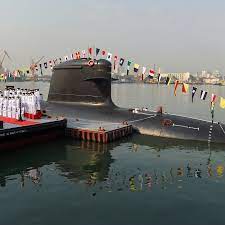
India’s first ballistic missile nuclear submarine (SSMN) INS Arihant carried out a successful launch of a Submarine Launched Ballistic Missile (SLBM).
- INS Arihant is India’s nuclear-powered ballistic missile capable submarine, classified under the SSBN (Sub-surface ballistic nuclear) programme.
It was commissioned in 2016. - INS Arihant is presently armed with K-15 SLBM with a range of 750 km.
- The next in the class, INS Arighat is reported to have been launched in 2017 and is said to have been undergoing sea trials.
- Operations of the SLBMs from the SSBN are under the purview of Strategic Forces Command which is part of India’s Nuclear Command Authority.
Submarine Launched Ballistic Missiles (SLBMs):
- The family of indigenously developed Submarine Launched Ballistic Missiles (SLBMs), sometimes referred to as K-family missiles are codenamed after Dr APJ Abdul Kalam.
- Under the SLBM family, missiles of various ranges have been developed including K-15 also called Sagarika, which has a range of at least 750 km.
- India has also developed and tested the K-4 missiles from the same family, which have a range of 3,500 km.
Electoral Bonds:

The Union government recently told the Supreme Court that the procedure for funding political parties under the Electoral Bond Scheme-2018 is “absolutely transparent”.
- The electoral bonds system was introduced in 2017 by way of a money bill introducing amendments in the Finance Act and the Representation of People Act.
- It was implemented in 2018.
- The electoral bonds are issued in multiples of Rs 1,000, Rs 10,000, Rs 1 lakh, Rs 10 lakh and Rs 1 crore.
- State Bank of India is the only bank authorised to sell electoral bonds.
- Buyers can donate the bonds to a party of their choice and the bonds have to be cashed by the party through its verified account within 15 days.
- No payment shall be made to any political party if the electoral bond is deposited after expiry of the validity period of 15 days.
- Eligible political parties are allotted a verified account by the Election Commission of India (ECI) and the electoral bond transactions can be made only through this account.
- Buyers of the bonds have to submit full KYC details at the time of buying.
- However, the beneficiary political party is not required to reveal the identity of the entity that has given it the bonds.
What Are Exoplanets?

In a new study, scientists have detected barium in the upper atmosphere of two giant exoplanets for the first time.
- Ultra-hot Jupiters are a class of hot gaseous planets that matches the size of Jupiter, but they have short orbital periods, unlike Jupiter.
What are Exoplanets?
- An exoplanet or extrasolar planet is a planet outside the Solar System. The first confirmation of detection of exoplanets occurred in 1992.
- More than 4,400 exoplanets have been discovered till now.
- They are very hard to see directly with telescopes. They are hidden by the bright glare of the stars they orbit.
- So, astronomers use other ways to detect and study exoplanets such as looking at the effects these planets have on the stars they orbit.
Findings :
- The exoplanets are two ultra-hot Jupiters WASP-76b and WASP-121b which orbit their host stars WASP 76 and WASP 121.
- The former is about 640 light-years away from the Earth and the latter around 900 light-years away.
- Both WASP-76b and WASP-121b complete one orbit in two days.
- Surface temperatures in these bodies reach as high as 1,000 degrees Celsius. These bodies have unique features owing to their high temperatures.
- For instance, WASP-76b experiences iron rain.
- The presence of hydrogen, lithium, sodium, magnesium, calcium, vanadium, chromium, manganese and iron in the atmosphere of the WASP-76 b has also been confirmed in addition to barium.
- In WASP 121b, they confirmed the presence of lithium, sodium, magnesium, calcium, vanadium, chromium, manganese, iron and nickel.
- Additionally, the team found elements such as cobalt and strontium.
- They also found indications of titanium in the exoplanet.
Carbon Dating:

Recently a court in Varanasi has rejected a plea requesting carbon dating into the structure (claimed to be shivling) found inside Gyanvapi Mosque.
- Carbon dating is a widely-used method to establish the age of organic materials.
- The dating method is based on the fact that Carbon-14 (C-14), an isotope of carbon with an atomic mass of 14, is radioactive, and decays at a well known rate.
- Developed by American physicist Willard F. Libby.
- The most abundant isotope of carbon in the atmosphere is C-12. A very small amount of C-14 is also present.
- The ratio of C-12 to C-14 in the atmosphere is almost static and is known.
- The changing ratio of C-12 to C-14 in the remains of a plant or animal after it dies can be measured, and can be used to deduce the approximate time when the organism died.
- However, carbon dating cannot be used to determine the age of non-living things like rocks (or Shivlings).
Purple Revolution:
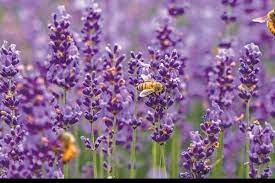
The Union State Minister for Science and Technology stated that the Purple Revolution offers attractive StartUp avenues.
- The Ministry of Science and Technology initiated the Purple Revolution or Lavender Revolution in 2016 through the Aroma Mission of the Council of Scientific and Industrial Research (CSIR).
Purple Revolution:
- It aims to promote the indigenous aromatic crop-based agro-economy by shifting from foreign aromatics to homegrown kinds.
- First-time producers were offered free lavender seedlings as part of the goal, and those who had previously produced lavender were paid Rs. 5-6 per plant.
- The CSIR-Aroma Indian Institute of Integrative Medicine (IIIM)’s Initiative have begun lavender cultivation in the Ramban district of Jammu and Kashmir.
- Lavender farming is done in nearly all of Jammu and Kashmir’s 20 districts.
- Particularly, the districts of Kathua, Udhampur, Doda, Kishtwar, Rajouri, Srinagar, Bandipora, Budgam, Ganderbal, Anantnag, Kulgam, Baramulla etc. have made huge progress in this direction.
- The main product is Lavender oil which sells for at least Rs. 10,000 per litre
- Lavender water, which separates from lavender oil, is used to make incense sticks.
- Hydrosol, which is formed after distillation from the flowers, is used to make soaps and room fresheners.
Multi-State Cooperative Societies (MSCS) Amendment Bill, 2022:

The Union Cabinet has approved the Multi-State Cooperative Societies (MSCS) Amendment Bill, 2022, which seeks to amend the Multi-State Cooperative Societies Act, 2002
- A new Ministry of Cooperation was formed in July 2021 with an objective to provide renewed impetus to the growth of Cooperative Sector.
- The amendments seek to improve ease of doing business, bringing greater transparency and enhance governance.
- It has included provisions relating to representation of women and Scheduled Caste/Scheduled Tribe members on the board of multi-state cooperative societies.
- The amendments have been brought to reform the electoral process, strengthen monitoring mechanisms and enhance accountability.
- It will also widen the composition of board and ensure financial discipline, besides enabling the multi-state cooperative societies to raise funds.
- To improve the governance of multi-state cooperative societies, the Bill has specific provisions for setting up of Cooperative Election Authority, Cooperative Information Officer and Cooperative Ombudsman.
- There will also be a provision for issuing non-voting shares in multi-state co-operative societies to help them raise funds.
- Further, the newly proposed Rehabilitation, Reconstruction & Development Fund will help in revitalising sick co-operative societies.
- The Bill will incorporate the provisions of the 97th Constitutional Amendment.
- Moreover, the provision for stipulating prudential norms will bring in financial discipline.
- The amendments relating to auditing mechanism will ensure more accountability.
6th East Asia Summit:
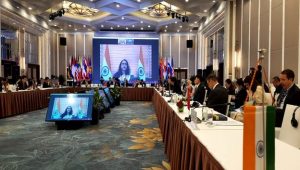
India participated at the 6th East Asia Summit Education Minister’s Meeting held recently in Hanoi, Vietnam.
- The East Asia Summit (EAS) is the Indo-Pacific’s premier forum for strategic dialogue.
- It was established in 2005.
- The EAS has 18 members:
- The ten ASEAN countries (Brunei, Cambodia, Indonesia, Laos, Malaysia, Myanmar, the Philippines, Singapore, Thailand, Vietnam) along with Australia, China, India, Japan, New Zealand, the Republic of Korea, Russia and the United States.
- The EAS membership represents around 54% of the world’s population and accounts for 58% of global GDP.
- Six priority areas of regional cooperation within the framework of the EAS
- Environment and Energy,
- Education,
- Finance,
- Global Health Issues and Pandemic Diseases,
- Natural Disaster Management, and
- ASEAN Connectivity
Global Hunger Index (GHI):

India has ranked 107 on the Global Hunger Index (GHI), 2022, out of 121 countries
- India’s score of 29.1 places it in the ‘serious’ category.
- India’s GHI score has decelerated – from 38.8 in 2000 to the range of 28.2 – 29.1 between 2014 and 2022.
- India also ranks below Sri Lanka (64), Nepal (81), Bangladesh (84), and Pakistan (99). Afghanistan (109) is the only country in South Asia that performs worse than India on the index.
- Seventeen countries, including China, Turkey, and Kuwait, shared the top rank with GHI score of less than five.
- The Global Hunger Index (GHI) is a tool for comprehensively measuring and tracking hunger at global, regional, and national levels.
- It is prepared jointly by Irish aid agency Concern Worldwide and German organisation Welt Hunger Hilfe.
- GHI scores are based on the values of four component indicators:
- Undernourishment (share of the population with insufficient caloric intake),
- child stunting (the share of children under age five who have low height for their age, reflecting chronic under-nutrition),
- child wasting (acute under-nutrition in children under age five with low weight for their height),
- child mortality (the mortality rate of children under the age of five).
- The GHI score is calculated on a 100-point scale reflecting the severity of hunger, where zero is the best score (no hunger) and 100 is the worst.
World Standards Day 2022:
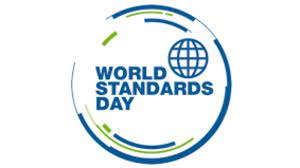
Bureau of Indian Standards, Mumbai recently organised a Conclave –“Manak Mahotsav” on occasion of World Standards Day based on the theme ‘Standards for Sustainable Development Goals – A Shared Vision for a Better World’.
- World Standards Day is celebrated every year on October 14.
- This day, also known as International Standards Day, strives to educate consumers, policymakers, and businesses about the value of standardisation.
- The International Organization for Standardisation (ISO) was founded in 1947.
- BIS is the National Standard Body working under the Ministry of consumer affairs, food and public distribution, Government of India.
- It is established by the Bureau of Indian Standards Act, 2016 which came into effect on 12 October 2017.
- Objective is the harmonious development of the activities of standardization, product testing and quality certification of goods in the country.
Split Verdict:
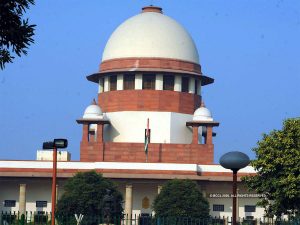
The Supreme Court recently delivered a split verdict in the Karnataka hijab ban case.
- A split verdict is passed when the Bench cannot decide one way or the other in a case, either by an unanimous decision or by a majority verdict.
- Split verdicts can only happen when the Bench has an even number of judges.
- This is why judges usually sit in Benches of odd numbers (three, five, seven, etc.) for important cases, even though two-judge Benches — known as Division Benches — are not uncommon.
- In case of a split verdict, the case is heard by a larger Bench.
- The larger Bench to which a split verdict goes can be a three-judge Bench of the High Court, or an appeal can be preferred before the Supreme Court.
- In the case of the hijab verdict, the CJI, who is the ‘master of the roster’, will constitute a new, larger Bench to hear the matter.
7th Women’s Asia Cup:

The Prime Minister, Shri Narendra Modi has congratulated the Indian women cricket team for winning the 7th Women’s Asia Cup.
- The Asian Cricket Council Women’s Asia Cup is a women’s One Day International and Twenty20 International cricket tournament.
- It was established in 2004 and is a biennial tournament. The tournament is contested by cricket teams from Asia.
- The first Women’s Asia Cup was held in 2004 on Colombo and Kandy in the Sri Lanka.
- The ICC has ruled that all the matches played in the Women’s Asia Cup has ODI or T20I status.
- The 2012 Women’s Asia Cup was the first event to be played in the T20 format.
International Monetary And Financial Committee:
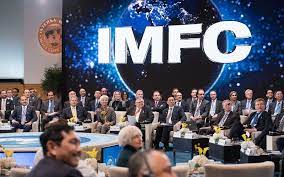
Union Finance Minister recently attended the International Monetary and Financial Committee in Washington DC.
- The IMF Board of Governors is advised by two ministerial committees, the International Monetary and Financial Committee (IMFC) and the Development Committee.
- The IMFC has 24 members, drawn from the pool of 190 governors.
- Its structure mirrors that of the Executive Board and its 24 constituencies.
- As such, the IMFC represents all the member countries of the Fund.
- The IMFC meets twice a year, during the Spring and Annual Meetings.
- The Committee discusses matters of common concern affecting the global economy and also advises the IMF on the direction its work.
The Development Committee:
- It is a joint committee, tasked with advising the Boards of Governors of the IMF and the World Bank on issues related to economic development in emerging and developing countries.
- The committee has 24 members (usually ministers of finance or development).
- It represents the full membership of the IMF and the World Bank and mainly serves as a forum for building intergovernmental consensus on critical development issues.




